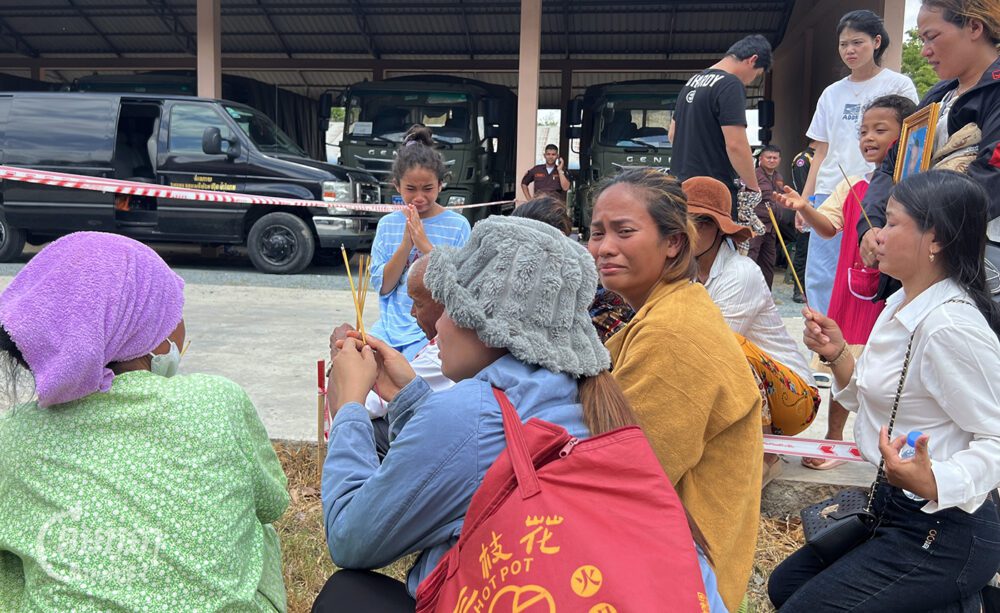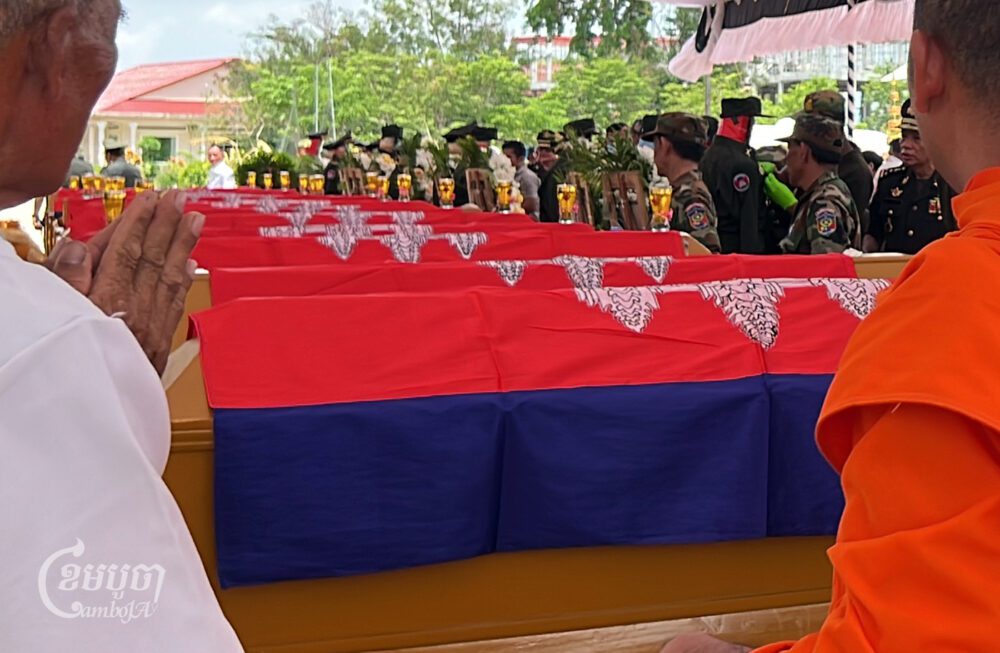A group of more than 20 entertainment industry workers submitted a second petition to the Labor Ministry on June 10 appealing for financial assistance while KTVs and nightclubs remain closed amid the Covid-19 outbreak.
Oum Manith, vice president of the Cambodian Food and Service Workers Federation (CFSWF) union, led the group of entertainment workers to the ministry to submit their petition, which had been thumbprinted by 99 workers calling on the Labor Ministry to provide them with emergency funding.
“The workers requested the government provide them with $40 per month until the Covid-19 virus has eased and until their workplaces open again,” Manith said. “They also requested the government help to intervene with landlords to reduce the fees of rental homes, water, and electricity and to help them afford food.”
“Please, we ask the government to help them because they are finding it very difficult to survive,” she said.
On March 17 the government ordered KTVs, nightclubs, cinemas and casinos to shutter until further notice in a bid to contain the Covid-19 outbreak.
A statement from CFSWF issued the same day estimated that about 80,000 workers would be affected.
Currently, the Cambodian government is only providing subsidies to workers who have been laid off in the garment and tourism sectors. For example, garment workers are able to receive up to $40 directly from the government and up to $30 from the owner of the relevant shuttered or suspended factory.
CFSWF President Ou Tepphallin said that most entertainment workers have not been able to find new employment since March 17.
“Most of them do not have money to pay rent, water, electricity or to buy food,” she said. “Some landlords allowed them to delay payment for a few months.”
She noted that a small number have been able to secure employment washing dishes at restaurants and others were scavenging trash.
Tepphallin said that she had previously sent a petition to the Labor Ministry on May 26 to ask for monetary support on behalf of entertainment industry workers, but the ministry did not respond, leading CFSWF to resubmit on June 10.
Nin Vannak, a deputy secretary-general on the Committee for the Resolution of Strikes at the Labor Ministry, acknowledged receipt of the latest petition.
“I received the petition from them already and I will send this petition to labor minister [Ith Samheng] to consider,” Vannak said, adding that he would provide the result after the minister had made a decision, but did not provide a timeframe.
Labor Ministry spokesman Heng Sour declined to comment.
Meanwhile, KTV workers continue to struggle to support their families or find new employment.
Mon Buntheng, 36, a waitress at a KTV in Phnom Penh said that she had worked there for five years before it shut its doors in line with government orders in March. She and her husband have three children and are struggling to make ends meet and pay rent and bills.
“Since my workplace closed, my family has been met with serious difficulties because I could not find other work and at the same time, my husband, who is a motorbike taxi driver, could not get money from his job because of Covid-19,” Buntheng said.
She added that since becoming unemployed, she and her husband have had to privately borrow $1,000 from an acquaintance.
“I request that the government and especially Samdech Hun Sen help support us,” she said.
Bun Hiv, 30, a KTV room owner in Phnom Penh told CamboJA that after the government announced the closure of KTVs on March 17 she could not find work, and had to return to her home province.
“I went back to live with my older sister in Pursat province’s Krakor district because I do not have money to pay for rent, water and electricity,” Hiv said. “I don’t even have money to buy food every day.”
She said that she needs money to support her child but she still does not have an income.
“I tried to find another job but I still can’t, so I’m facing serious problems with my living situation since I do not own a house,” she added. “Please samdech prime minister help those of us who work in the entertainment service because we are finding it very difficult to live.”
Another KTV employee who gave her name only as Linna, 28, said that she also can’t find a new job, or afford her rent in Phnom Penh’s Sen Sok district. She added that to make matters worse, her parents who live in Prey Veng province’s Peamro district had taken out a $1,500 loan for her in January, which she had expected to be able to repay.
“I asked my parents to borrow money from the bank because we did not know that Covid-19 would spread to Cambodia,” Linna said, adding that both her landlord and the bank had declined to delay payments to help her.
Pa Chanroeun, the director of the independent think tank Cambodian Centre for Applied Philosophy and Ethics, called on the government to support informal service sector workers who have been disproportionately affected by Covid-19 business closures.
“I support their request for finding the resolution, so the government should help to resolve it for them,” he said.
However, he said that the capacity of the Cambodian government is different from Western and European nations, which have been able to help all of their citizens during the recent outbreak. He said unlike Australia or America, Cambodia does not have proper records for many of the people who have been affected, although they should be able to rely on the government.
“In general, any people who are facing difficulty with their living expenses, they should be able to count on support from the government,” he said.








